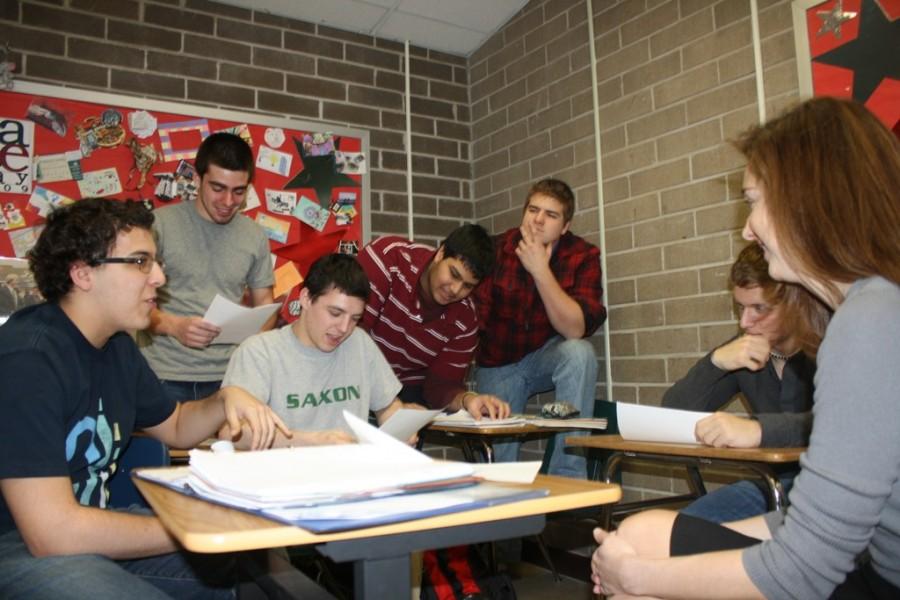Ontological doubt, Cartesian Circle, Tabula Rasa, esse est percipi, a posteriori and a priori knowledge. These are just a handful of the concepts students grapple with in a philosophy class where a student can contemplate and ponder the meaning of life altogether. NOK, formally known as Nature of Knowledge, gives students the foundation to study not only the groundwork of knowledge, but the groundwork of life.
“In NOK, students can develop their own sense of opinions, while also learning the opinions of others,” said Mrs. Cohen, the Nature of Knowledge instructor.
One of the fundamentals of this elective is dictated by one word: epistemology. Exploring the branches of knowledge, students ultimately learn to address three distinct questions: What is knowledge? How is knowledge acquired? How do we know what we know?
“This class really makes you question even the things we are most certain about,” said senior Javin Cohen. “Now, color doesn’t seem to exist anymore.”
With the idea of certainty concealed all together, students can explore the world outside of their own element. Some even find that skepticism may cloud their judgments.
“I find that my brain is always stimulated when I am in this class,” said senior Maddy Boyer. “Never before have I doubted my own reality.”
Unlike the conventional yes-no or true-false approach to questions that is the primary focus in core classes, NOK takes a different route. For the questions posed in NOK, there may be a slew of different paths to arrive at an answer, that if, is there even is a feasible answer.
“NOK opens the curriculum up to questions that have no right or wrong answer,” said Mrs. Cohen. “A student can wrestle with questions that are not in the typical classroom.”
Through the investigation of the nature of and scope of knowledge, students conduct active discussions pertaining to truth, belief, and justification.
“Through exploring the nature of your own existence, it helps you make you look at the world in new ways,” said senior Will Baird.


